In 2020, the US will hold presidential elections. Voters will decide if Donald Trump will be re-elected for a second term as president or whether one of his democratic contenders will get an opportunity to occupy the White House.
Trump has several strengths and weaknesses which will likely factor in to his chances in the elections.
Trump’s Strong Suits
1) Stable electorate and Trumpism
Trumpism, in its original incarnation, is based in the economic protectionism of his “America First” policy line and opposition to globalism both of which helped propel Trump into the White House in 2016. Despite that almost no one believed an eccentric millionaire could come out victorious over a well connected career politician, ordinary voters chose him over Hillary Clinton. They didn’t count on the fact that a simple and funny guy would be more appealing than the serious and unlikable Hillary Clinton, who he beat by a significant margin (304 vs. 227).
One of Trump’s central promises was to “Drain the Swamp.” Trump’s rhetoric can be divided into two components – Trumpism (pure populism against the establishment) and neoconservative elements (perhaps best exemplified in his connection with Israel). Since coming into office, Trump has significantly turned away from his populist roots and moved in an increasingly neoconservative direction. He is often inconsistent and sometimes even seems to move in two directions at once, but he consistently opposes the Democrat’s line.
His strength is that he moves against the liberal flow and throws wrenches in the globalist machinery. He tries to apply his business acumen to his political decisions to strike “good” deals and criticize “bad” ones.
Average people approve of this strategy, as his fairly stable ratings show – while they are not the highest, but rarely take strong dives. At present, according to a Gallup poll, his approval rating is at 44%.
2) Economic promises fulfilled
Unemployment in the US has reached a record low.
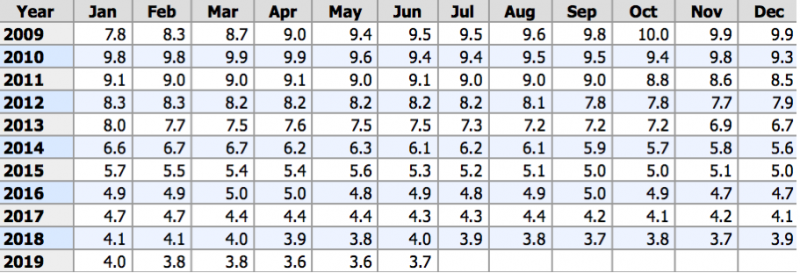
- The GDP is strong according to World Bank statistics from 2016:
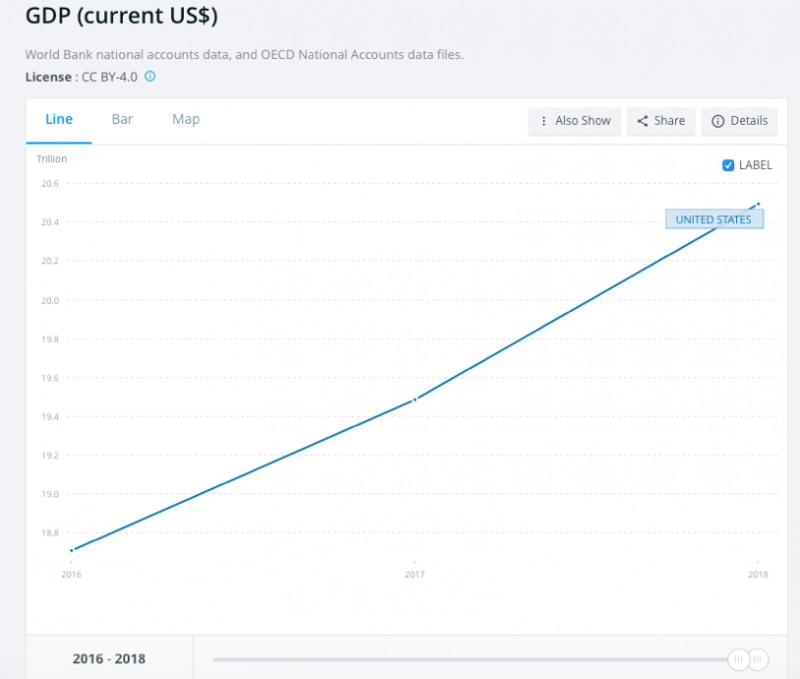
- GDP annual growth from 2016:
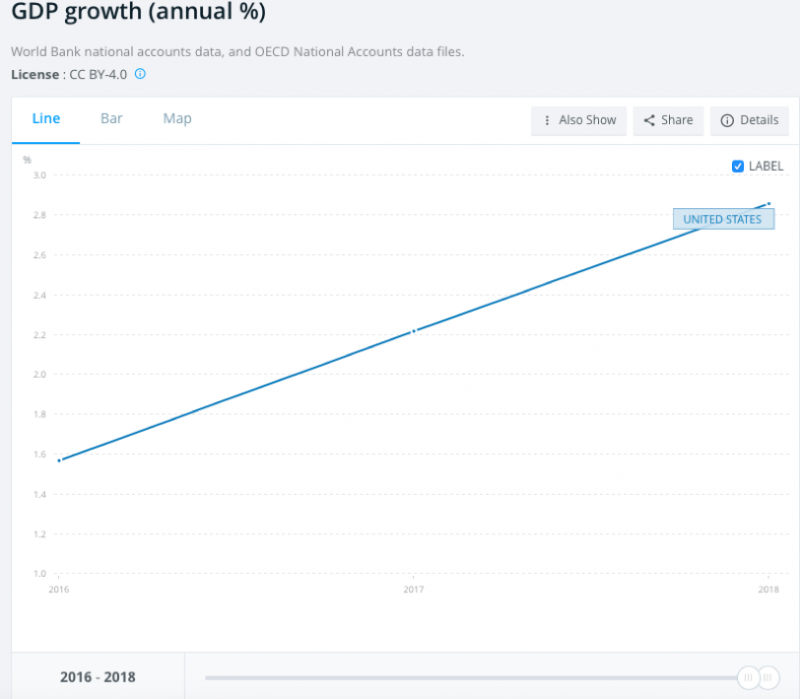
- Data on average salaries per year (2018-2019) according to the Bureau of labor statistics data:
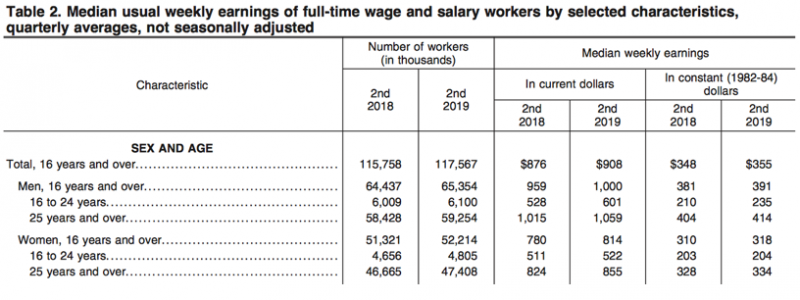
3) Charges of sexism and racism are working to his benefit
Paradoxically, accusations of sexism, racism, misogyny and other liberal-sins look so ridiculous, they give him an anti-politically correct charm.
The president’s ratings did not suffer even when he made rather aggressive comments about African countries, started a battle with four female congressmen, or after his recent attacks on Baltimore authorities. Trump then got into a spat with one his long-term critics – Congressman Elijah Cummings, calling his district (which mainly consists of African Americans) a “rat and rodent infested mess.” Trump says people are not turning against him for his remarks.
“They really appreciate what I’m doing, and they’ve let me know it,” he said.
His many negative comments about women (which many activists and politicians called sexist), also did not prevent him from winning the race in 2016.
4) Geopolitical shifts
Trump’s primary achievement has been upending the US’ drive for world domination. Part of this plan has been a rejection of the liberal “Great Middle East” project, refusing to conduct endless senseless military interventions (with the exception of two attacks on Syria) and focus on harsh rhetoric and sanctions.
He has tried to establish contacts with so-called “rogue states” like North Korea. The Democrats have also attempted to connect Trump to Russian at every opportunity in order to discredit or impeach him.
Diplomacy is not always a successful tactic in the context of a multipolar world – for example, Trump’s ongoing confrontation with Iran has put the two countries at the brink of war, the trade war with China has been more or less unsuccessful and efforts to stage a coup in Venezuela have fallen flat.
5) Weak opponents
Democrat Joe Biden, according to Trump himself, is likely to be Trump’s opponent in the upcoming presidential election.
However, in the first and second democratic debates, Biden performed very poorly.
Another Presidential hopeful, Kamala Harris, has adopted a strategy of accusing Biden of racism. While she is not a strong enough competitor to threaten Biden yet, in the long run, with the backing of the Swamp, she has strong potential. Oddly enough, during the second debate, she herself fell victim to the same strategy, when Tulsi Gabbard brought up her record as a prosecutor.
Senator Harris claims to be “for the people”. Her record as AG tells a very different story. (link: https://t.co/JeftgP0Qma) https://t.co/JeftgP0Qma #TulsiGabbard #Tulsi2020 pic.twitter.com/lUFhxGTBkr
— Tulsi Gabbard ???? (@TulsiGabbard) August 1, 2019
If Biden is chosen, he is unlikely to pose a serious threat to Trump. He does not have Trump’s charisma or confidence, and his go to strategy of relying on his tenure as Barack Obama’s Vice President is not convincing to the audience.
Trump’s Weak Side
1) Eternal struggle with Congress
Trump’s main weakness is not in his alleged “Russian collusion” or sexism, but in structural internal struggles. Congress has blocked many of Trump’s populist initiatives, and is ready to push for the president’s impeachment.
At the very start of the new presidential race, Democratic Rep. Eliot Engel called for an investigation into impeachment proceedings against Trump. Despite the fact that Special Prosecutor Robert Mueller’s report on Trump’s alleged collusion with Russia came up empty, Congress has decided to push forward with charges of obstruction of justice.
All of congress’s attempts to block Trump’s decisions or bring about an impeachment hearing are part of testing the system’s reaction. Since attempts to kick Trump out of office turned out to be a failure the first time, his opponents will try it again in his second term (if he is elected).
2) Strong pro-Israel positions
In making foreign policy decisions, Trump acts on his own idiosyncratic logic – which just so happens to be consistent with Israel’s interests. This is why Trump recognized Jerusalem and the Golan Heights as part of Israel, his strong rhetoric around anti-Semitism, his the tough stance against Iran and his concerted attacks on Syria.
The problem is not that the senators are accusing him of being bought and sold by the Israeli lobby, as was the case during Trump’s debate with Ilhan Omar. Omar was switfly accused of anti-Semitism for her words.
The actual issue is that anti-Semitism has nothing to do with anti-Zionism. Zionist policy essentially denies Judaism, and violates the basic talmudic commandments — it is anti-religion. As long as a Zionist policy is in place in Israel, building a multipolar world will be a difficult task.
Because of this, Trump is set to face criticism from both his Democratic opponents and anti-Zionists.
This also complicates the Trump administration’s negotiations with several Middle Eastern powers.
3) Healthcare
Healthcare in America is still in desperate need of reform. The Obamacare program (which some candidates defend, including Biden) proved inconsistent, but no worthy alternative has been offered. Other candidates (including Bernie Sanders and Elizabeth Warren) are promising a ‘Medicare for All’ single-payer system.
However, critics say that such a system will not actually be as “free,” as the democrats promise – this would inevitably lead to higher taxes and the possible abolition of the premium system. Medicare does not include dental services, eye examinations, or hearing aids (which is critical for older people). Also, the program does not cover services abroad. But most importantly, it does not cover nursing homes or reimburse the costs of patient medications.
Trump is trying to resolve the issue in his own way – by offering to import drugs from Canada and selling at the best prices (the Trump administration’s “safe importation action plan”). These medicines would include vital resources like insulin (the price of which has risen by about 300 percent from 2002 to 2013) as well as medicines for rheumatoid arthritis, cancer and cardiovascular diseases.
The pharmaceutical industry opposes the bill, as do some Republicans, criticizing the initiative as an attempt to introduce “price controls” in a market economy. At the moment, the US government does not directly regulate drug prices, and pharmaceutical companies set any price that the market can handle. In contrast, in Canada, the federal tribunal sets the maximum price for patented drugs based on price comparisons in seven industrialized countries.
Criticism of the initiative has also come also from Canada itself, where many are not sure their system will be able to cope with providing such a large volume for another country. Some fear illegal online pharmacies disguised as licensed Canadian ones will quickly become a huge problem.
4) Ecology
As the environmental movement strengthens in the West (both in the US and Europe), Trump has increasingly come under attack for his environmental “irresponsibility”. Environmentals are leveling heavy criticism against the president for concentrating on oil and gas exports, diverging from Obama’s turn toward alternative energy sources.
Experts note that environmental issues will be particularly costly for Trump in coastal states and some areas of the midwest where climate change is already causing flooding.
In a recent survey, 62 percent of respondents said they did not approve of Trump’s climate policy.
5) Unexpected scandals
2020 is still rather far away, and it is not unlikely that Trump will find himself in new scandals before the polling places open.
***
Additional factors
- Trade war with China
Trump’s trade war with China is not yet over, and the results of the economic battle could have a strong impact on the elections.
- The Wall
In many ways, Trump has staked his political career on his proposal to build a wall on the US’ Southern Border. Constructing the wall in order to curb illegal immigration was Trump’s signature promise during his 2016 presidential campaign. After an extensive battle with congress, Trump recently received partial funding to begin construction.







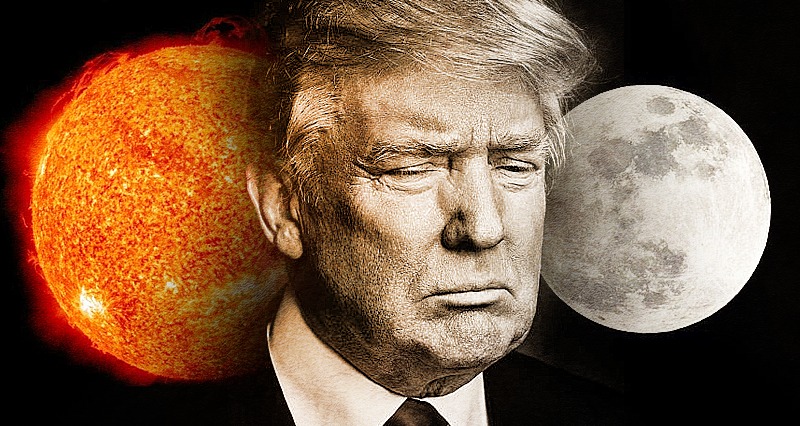
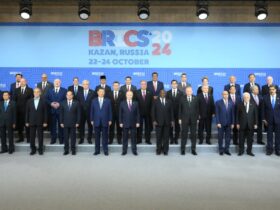








Leave a Reply